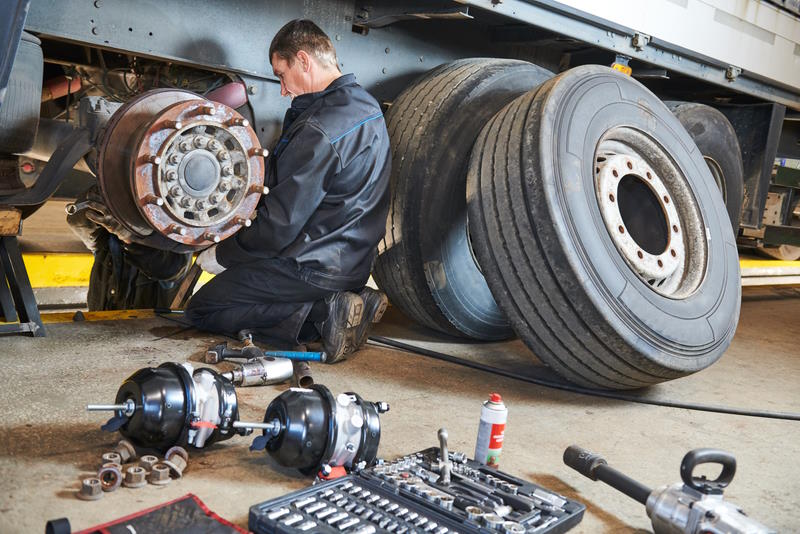When you decide to own a heavy-duty track, purchasing it may be the highest cost you'll ever incur during the ownership period. However, repair and maintenance expenses can quickly add up and be more costly in the long run or even cause losses. Therefore, taking preventive measures to reduce truck repair costs is crucial.
A heavy-duty truck is exposed to too much wear and tear from continuous use. This kind of damage can be different from what smaller, personal vehicles suffer. As such, it also requires specialized care and maintenance to reduce costly repairs or replacements.
Here are some ways truck owners can reduce heavy-duty trucking repair costs:
1. Maintain The Engine And Engine Components
Most truck owners and mechanics will agree that nothing can replace regular engine maintenance. Engine oil and filter changes should be done routinely to ensure the truck runs smoothly and efficiently. Keeping up with scheduled maintenance will also help identify potential issues before they become more significant problems.
When doing regular engine maintenance, you should follow the manufacturer's recommendations for aspects such as oil change intervals. For example, for Volvo D13 diesel filters, abrasive blasting or harsh chemicals isn't recommended as they can destroy the substrate, leading to premature failure. But once you clean and change this filter type regularly, it’ll meet the regulatory requirements for emissions and help prevent any breakdown down the road.

2. Maintain The Braking System
According to the Federal Motor Carrier Safety Administration, bad breaks account for about 24.9% of large truck collisions. This means it’s essential to maintain the braking system properly to keep your truck running safely. In addition, regularly inspecting and servicing the breaks will help identify potential issues before they worsen into more severe issues.
Use high-quality parts when replacing brake components. These can reduce repair costs because they last longer and stand up to the rigors of being on a truck. Additionally, ensure proper adjustment and alignment of the brakes. This will ensure that they're working as efficiently as possible.
3. Check Tires Regularly
Having good tire pressure is critical to a heavy-duty truck's performance. So, make sure the tires are in good shape with no damage to the tread or sidewalls. Additionally, rotate and balance them regularly to ensure even wear. Doing so will help prevent blowouts, which can be dangerous and expensive to repair.
Developing a tire retreading program is one of the best ways to reduce tire maintenance and replacement costs. One session can go up to 120,000 miles but at a fraction of buying a new tire.
Furthermore, it's essential to use the seal-type valve cap to prevent leaking from the valve and ensure proper inflation, which will help extend your tires' lifespan.
4. Check On Driver Behavior
While you may do everything to maintain your truck, you can't control how it’s driven. Your drivers can be the most significant downside in your heavy-duty trucking operations. They can cause accidents, leading to court battles and compensation claims from victims. Additionally, they can damage your vehicles, leading to costly repairs.
Therefore, freight operators should invest in training drivers to avoid bad driving habits, like aggressive braking and sudden acceleration, which can all affect the life of the truck and its parts. Furthermore, when managing fleet trucks with GPS technology and other tracking tools, you can monitor driver behavior and take necessary steps to prevent damage.
So, ensure that you have qualified and competent drivers for your trucks.
5. Practice Preventive Maintenance
Preventive maintenance is one of the most effective ways to reduce heavy-duty trucking repair costs. Not only will it help you identify potential problems early on, but it can also help prevent major issues from occurring in the future.
You must keep up with regular preventive maintenance for your trucks, such as checking the brakes, oil levels, and tires. Doing so will help you identify anything that needs repair or replacement before it becomes an expensive problem. Preventive maintenance should also be customized for each truck.
To create a maintenance program, you can use factors such as age, mileage, intended work, and operating region. A truck operating mainly throughout the country will have different maintenance needs than one working on city roads.
6. Have A Comprehensive Insurance Coverage
Having comprehensive insurance coverage is essential to protecting yourself against any potential issues that may arise. The right insurance policy can help cover repairs and damages caused by accidents or unavoidable circumstances. This will help you protect your trucks and keep them running for extended periods without investing in costly repairs.
One thing to note is that the type of coverage that covers the goods in transit differs from the type of coverage that covers the truck itself. So, understand what type of insurance is best for your situation and invest accordingly. Also, read the policy's fine print to understand the extent of the coverage.
7. Optimize Routes To Reduce Wear And Tear
Route optimization is always a priority when it comes to heavy-duty trucking. You should plan efficient and cost-effective routes while considering traffic patterns and weather conditions. While many freight managers use route optimization to beat traffic, reduce delivery time, and save on fuel, it also plays a vital role in reducing the need for repairs.
Having the proper route can reduce the wear and tear on your trucks, saving you money in repair costs down the road. For example, there's no need for your truck to use a particular route if there's no pickup or dropoff. This will prevent the wearing off of tire threads or the engine filters and, in turn, the need to repair them.
Furthermore, consider factors like speed limits, road type, and terrain when planning routes to ensure your trucks operate efficiently and safely.
Conclusion
Knowing ways to reduce heavy-duty trucking repair costs can help you save money and time in the long run. Invest in preventive maintenance, optimize routes, and have comprehensive insurance coverage for your fleet. By taking these steps, you'll be able to keep your trucks running for years, allowing your business to benefit from huge savings.
